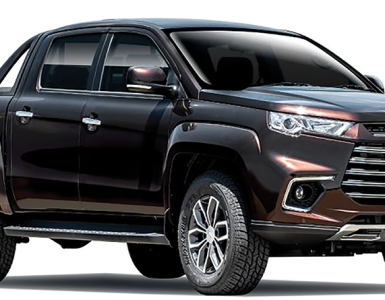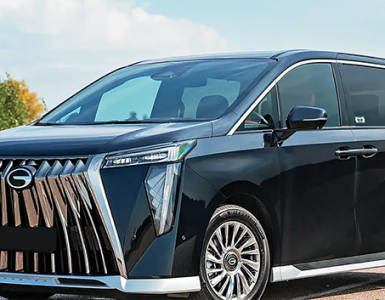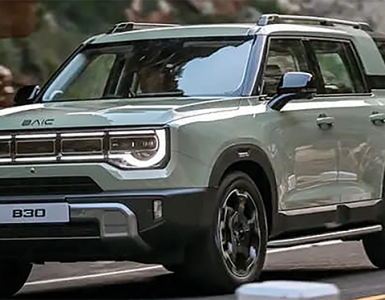FIGHTING BACK: Only time will tell but where there is a will there is way
By Special Correspondent
Africa has a large and important car manufacturing industry but none is sold to customers within the Continent. All are exported. Almost every car bought and used by Africans is imported and most are second hand, carrying huge import duties that typically double the price making them more expensive than new cars sold abroad.
Africans are sick of it and are answering back. Nigerians have a word “tokunbo” meaning “foreign used”. A statement on the website of Innoson Motors, one of Africa’s first and only automotive manufacturing companies, reflects the current mood:
“Africa has literally become a dumping ground for foreign used automobiles. We are not second class people that should only drive second hand vehicles.”
A commonly held view is that no one manufacturers cars in Africa for the African market but Global Fleet has found a handful of entrepreneur-lead organisations making a mockery of that assumption. In 1978, a commercial town situated in Eastern Nigeria, Nnewi, had become the central hub for motorcycle importation but a lack of choice and competition kept prices artificially high. A second-hand motorcycle could costs as much as 80% of the price of a brand new one.
In 1987, at 25-years-old, Nigerian born entrepreneur Innocent Chukwuma founded the first motorcycle manufacturing company in Nigerian Innoson Motors and drove tokunbo out of the country forever. He’s now planning the same for cars.

Innoson was the first made-in-Africa automobile brand and is now one of the largest car manufacturers on the continent having sold 10,000 vehicles since inception from its plant in Nnewi, to customers including the Nigerian government. Its range includes pickups, such as the Innoson IVM Granite, SUVs (Innoson G20), sedans (Innoson Fox and Umu), and busses (Innoson 5000 and 6540).
Wallyscar
Founded in Tunisia in 2006, Wallyscar manufactures a range of small 4x4s sold predominantly in Africa, the Middle East and Europe. Brothers Omar and Zeid Guiga set up the company with the idea of making the vehicles affordable, stylish and sporty. They sell to order between 300-600 units a year at a price point of around €15,000 and are now planning an electric version.
Kantanka Cars
Engineers at the Apostle Safo Suaye Technological Centre in Ghana have been busy developing an electric car. The company itself was established in 1994 by Apostle Dr Ing. Kwadwo Safo Kantanka to manufacture a range of saloons, four-wheel drives,
SUVs and pickups.
In December 2019, the company started manufacturing electric vehicles. The Kantanka Odeneho II is powered by 12 rechargeable batteries, each with a predicted lifespan of over four years. Unlike EVs produced outside of Africa, such as the Tesla, the Kantanka Odeneho does not require specialist set up or equipment for charging as it plugs straight into a mains socket.
Mobius Motors
Founded in Kenyan in 2011 by Joel Jackson, the first generation Mobius II was launched in 2015 with the next-generation released in 2019. Mobius uses the slogan “Designed for Africa. Built in Africa.” It released its first batch of low-cost vehicles towards the end of 2017. Designed for Africa’s common road terrain and transport usage, the SUV costs around €9,000 ($10,000), which is roughly the price of a used sedan.
Africa’s first EV
Africa’s first electric vehicle to go into production, the Kiira EV, was built by students of Uganda’s Makerere University in 2011 with government support. The students went on the found Kiira Motors Corporation (KMC) after taking part in a vehicle design summit organized by the MIT (Massachusetts Institute of Technology).
In 2014, KMC officially became a company owned by the Ugandan government and Makerere University. Eager to support the production of eco-friendly vehicles, the government granted the company a 100 acres of land to establish a manufacturing plant.
KMC has so far designed and built three concept vehicles, the first of their kind in Africa. They include the Kiira EV, Kiira EV Smach, which is the first electric hybrid vehicle designed and built in Africa and the Kayoola Solar Bus, which runs on lithium-ion batteries that power the electric motor plus a 2-speed pneumatic shift transmission.
Only time will tell if Africa will win the fight for domestically manufactured vehicles, designed for the terrain at affordable prices but where there’s a will, there’s a way.
The Continent’s growing urbanisation and middle classes have some power and appear to be voting with their feet. It seems some governments are also now keen to support local production – The Network Executive






























